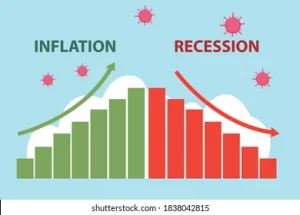
MTN Nigeria Communications Plc, a prominent player in the nation’s telecommunications sector, has etched its mark since its establishment in February 2001 as the Nigerian subsidiary of the MTN Group, a telecommunications giant operating across 22 countries in Africa and the Middle East
Listed on the Nigerian Stock Exchange in 2019, the company’s shares have witnessed substantial growth, catapulting from N99 per share to N283, signifying an impressive 186% share price appreciation.
Last year, the share price gained 22.79% YTD and has sustained the bullish trend in the current fiscal year with a Year-to-Date gain of 7.20%, ranking it the third most valuable stock on the NGX, with a market capitalization of NGN 5.862 trillion.
Adding to its financial appeal, MTN Nigeria has consistently rewarded shareholders through dividends since its 2019 listing, achieving a robust Dividend Compound Annual Growth Rate (CAGR) of 38%.
However, beyond the allure of share price and dividend gains, of concern is a permanent loss of capital, which is one of the biggest risks in investment.
Consequently, in gauging a company’s risk profile, the spotlight often turns to its debt, a factor intricately linked to instances of bankruptcy.
It’s worth noting that MTN Nigeria does carry debt on its balance sheet. However, the pertinent question is, should shareholders harbor concerns regarding the company’s debt profile?
Debt only becomes a problem when a company cannot easily pay it off either by raising capital or utilizing its internal cash flow.
If things get bad, lenders can take control of the business. However, a more usual (but still expensive) situation is where a company must dilute shareholders at a cheap share price simply to get debt under control.
Certainly, debt serves as a valuable tool for businesses, particularly those with substantial capital requirements, such as telecom companies.
When evaluating a company’s debt profile and use of debt, a holistic approach involves considering both cash and debt.
In the case of MTN Nigeria, a review of its Q3 2023 financial statements unveils a loan book balance of N1.022 trillion as of September 2023, indicating a substantial 48.30% Year-over-Year growth.
However, a closer look at the financials reveals a potential challenge. The total liabilities reported amount to N2.769 trillion, surpassing the aggregate value of its cash and short-term receivables.
While the reported liabilities may appear substantial, it is not bad since MTNN has a huge market capitalization of N5.760 trillion. This robust market valuation implies that the company holds significant equity and has the potential to bolster its balance sheet through capital-raising endeavors, should the need arise.
Collectively, these indicators suggest that MTN Nigeria has the capacity to meet its debt obligations, as its earnings are deemed sufficient to cover both overall debt and interest expenses.
Another angle is to look at the proportion of that EBIT that is matched by actual free cash flow.
In the 9M 2023 period, MTNN reported a commendable free cash flow of N502.926 billion, constituting 83% of its EBIT. This achievement is noteworthy, especially considering that free cash flow excludes interest and tax. The substantial free cash flow underscores the company’s good position to pay down debt, when appropriate.
However, it’s essential to highlight a potential concern: the net debt to EBITDA ratio stands at approximately 88%, which we consider a bit high and worth keeping in mind.
The ability of MTNN to sustain its debt payments and uphold a robust balance sheet moving forward relies heavily on increased earnings and effective cost management.
Although the company recorded growth across all revenue lines; however, the mid and bottom lines have faced challenges attributable to cost pressures and foreign exchange losses, evident in the 2.4 percentage point decline in EBITDA and 42% decline in pre-tax profit in 9M 2023.
As stated in its Q3 2023 financial report, the company anticipates the manifestation of these challenges in Q4, with potential impacts on earnings, margins, dividend payments, retained earnings, shareholders’ funds, and overall financial leverage.
As of the end of Q3 2023, MTN Nigeria’s assets stand at around 9.93 times its equity, indicating a relatively high level of financial leverage. Additionally, the total debt is approximately 3.3 times its total equity
This points to a higher level of financial leverage. While this can amplify returns to shareholders, it can also amplify risk.
While MTN Nigeria basks in financial success and investor confidence as evident its high trailing earnings multiple of 26.64x, vigilance is crucial.
Striking the right balance between growth, debt management, and risk mitigation will be pivotal for sustaining a healthy balance sheet.







